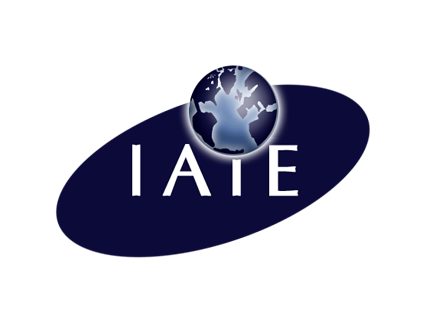Intercultural Competence around the Globe: IAIE and NAME and KAME
Chair: Prof. Miri Shonfeld
Panel Representatives:
IAIE President: Dr. Barry Van Driel
NAME President: Dr. Ludwig van Broekhuizen
KAME President: Dr. Chang, Insil, Gyeongin National University of Education
In this panel, the representatives will provide a comprehensive overview of their organization’s vision, mission, and key activities. Each representative will articulate the foundational principles that guide their work and the specific goals they aim to achieve within their respective fields.
They will discuss current initiatives and programs, highlighting successful projects and their impact on the communities they serve. The session will also cover any unique strategies or methodologies employed by their organizations to address challenges and promote growth. This will be an excellent opportunity for attendees to engage with the representatives, ask questions, and explore how their own work might align with the shared goals of fostering intercultural competence and inclusivity.
By the end of the panel, participants will have a clearer understanding of the organization’s contributions to the field and the vital role they play in promoting a more interconnected and culturally aware society.
The International Association for Intercultural Education (IAIE)
The International Association for Intercultural Education (IAIE) has more than 35 years of dedicated work in the sector. The organization originates in 20th century Europe’s unprecedented socio-economic dynamics of war, decolonization, and migration, especially challenging the predominantly monocultural education systems. The IAIE was created in a dissatisfaction with the educational response to advocate for the development of compensatory educational programs to support the new culturally diverse society.
For more than 35 years now, the IAIE has remained active internationally to promote and support best practices in the educational sector. The organization holds annual conferences, bringing together hundreds of experts, academics, educators and practitioners for discussion and inspiration for fitting interculturalism into educational practices in line with the current dynamics. Some of the conference venues include Mexico, Italy, Greece, Israel, Bosnia and Herzegovina. More recently it also started organizing online conferences, overcoming spatial and budgeting barriers and allowing for even wider participation of educators from all over the world.
The IAIE publishes its journal Intercultural Education 6 times a year, which has globally grown to influence academics and politicians in their approach to education. Moreover, the organization actively supports and organizes events on issues of education in a multicultural society in with other NGOs and educational institutions. Lastly, the IAIE remains engaged in curriculum and materials development, promoting latest best practices and supporting educators.
NAME
The Founders of NAME envisioned an organization that would bring together individuals and groups with an interest in multicultural education from all levels of education, different academic disciplines and from diverse educational institutions and occupations. At the 1990 meeting of the Association of Teacher Educators’ (ATE) Multicultural Education Special Interest Group, Rose Duhon-Sells challenged members to create such an organization. The new association, NAME, was launched through a national conference held in conjunction with the 1991 ATE meeting in New Orleans.
NAME today is an active, growing organization, with over 1,500 members from throughout the United States and several other countries. NAME is a registered 501-c.3 non-profit organization. Educators from preschool through higher education and representatives from business and communities comprise NAME’s membership. Members in many local communities and states have formed NAME local chapters that serve the same networking, support and outreach functions on the local level, similar to the national network.
NAME’s Mission :
NAME is a collective voice that advances and advocates for social justice and educational equity through multicultural education.
NAME’s Objectives:
- To provide opportunities for learning in order to advance multicultural education, equity and social justice.
- To proactively reframe public debate and impact current and emerging policies in ways that advance social, political, economic and educational equity through advocacy, position papers, policy statements and other strategies.
- To provide the preeminent digital clearinghouse of resources about educational equity and social justice.
KAME
The Korean Association for Multicultural Education (KAME) aims to advance academic research and activities related to multicultural education. The association is dedicated to eliminating all forms of educational discrimination based on gender, class, race, and religion, ensuring that all members of Korean society can equally benefit from education. KAME also strives to promote the recognition of all individuals as persons with inherent dignity and equal global citizens who share the same rights. The association hosts annual international conferences and publishes two academic journals: Multicultural Education Studies (KCI) and Multicultural Education Review (SCOPUS), the latter of which has been published in collaboration with Routledge since 2015.


